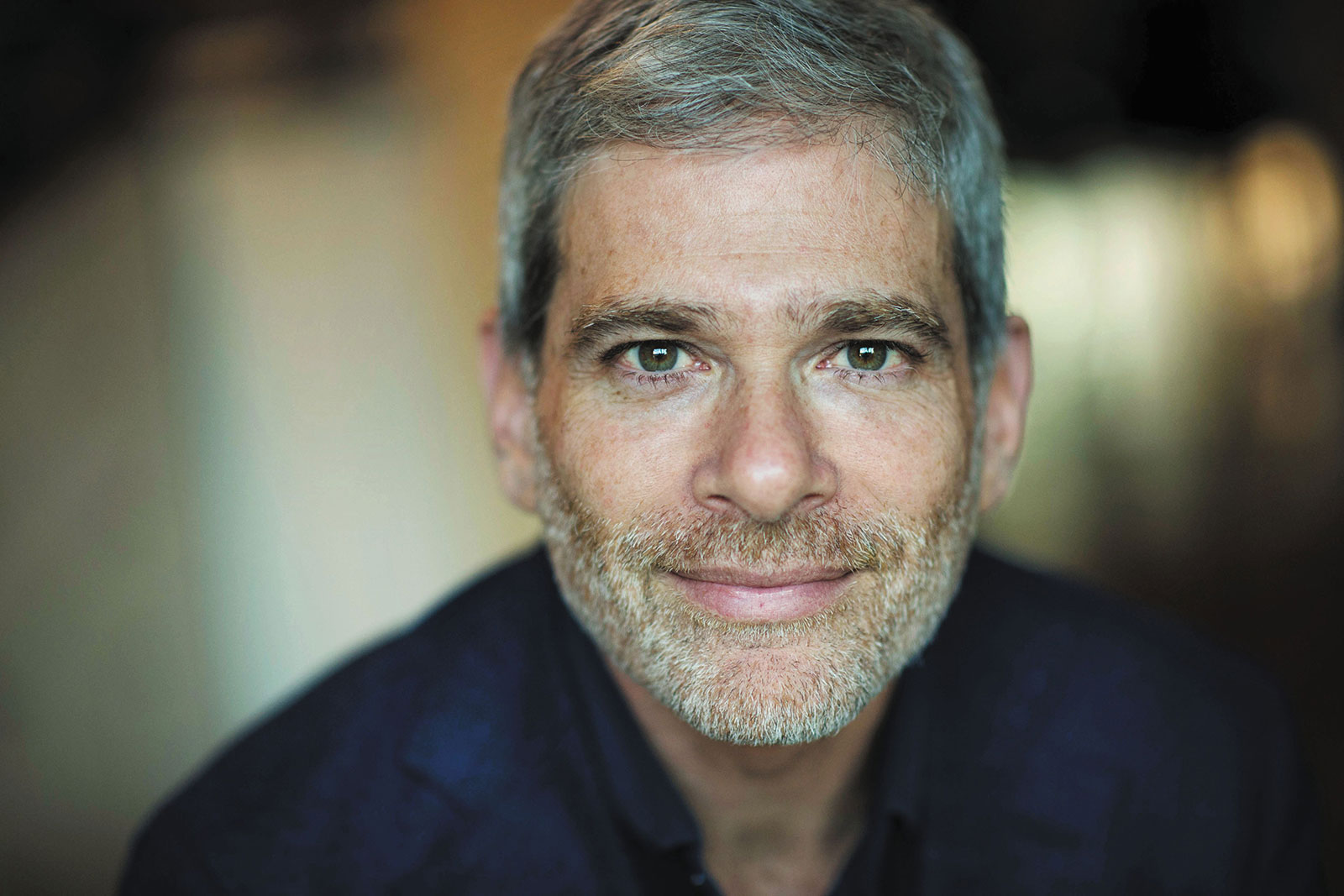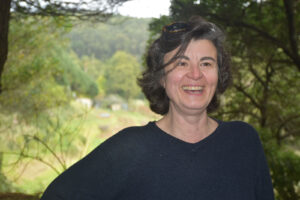“I am writing this book because my wife died of ovarian cancer, [but] this won’t be a maudlin tale of death,” begins Jason B. Rosenthal in his new memoir, “My Wife Said You May Want to Marry Me.” Rosenthal reflects on the life of unquestionable, unwavering love he shared with his wife of 26 years, the award-winning author Amy Krouse Rosenthal, and contemplates what comes next.
In March 2017, Amy published a “Modern Love” column in the New York Times. Ten days later, she passed away from ovarian cancer. The Times piece went viral, ultimately read by five million people who were inspired by the true and poignant love story of Amy and Jason. Amy’s piece, titled “You May Want to Marry My Husband,” was written during her final days of life. In it, she ruminates on what she will miss. She wants more time with her husband, with her children; she wants more time to laugh and play and enjoy each other’s company—”But that is not going to happen,” Amy says. “I probably have only a few days left being a person on this planet. So why [am I writing] this?” She answers her own question: “I am wrapping this up on Valentine’s Day, and the most genuine, non-vase-oriented gift I can hope for is that the right person reads this, finds Jason, and another love story begins.”
“My Wife Said You May Want to Marry Me” is the next chapter of the couple’s love story, following Jason as he reflects on his extraordinary marriage to Amy, raising their three children, the shock of Amy’s cancer diagnosis and her untimely and unfair passing. But Jason also shares what comes next, because just as Amy desired, his life and the lives of their children must continue. In “My Wife Said You May Want to Marry Me,” Jason considers his wife’s final gift—the opportunity to move beyond the pain and heartbreak in the wake of her passing to find a new story of love, peace and happiness. Cancer Wellness chatted with Jason by phone about writing his new book, his “new normal,” and his new nonprofit: the Amy Krouse Rosenthal Foundation.
What motivated you to write this book?
I was a very private individual with very little presence on social media or anywhere else, so it’s a good question as to why I would choose to open myself up in such a personal and in-depth way. It started, of course, from the moment that Amy’s essay came out that I was thrust into the spotlight, if you will. That led to a lot of things, including a TED Talk in April 2018, and then my own “Modern Love” column in June 2018. It was from that article that my publisher, Harper Collins, reached out to me and asked if I wanted to expand it into a book. I thought about it long and hard. I realized throughout that period of time that many, many people throughout the world had resonated with me and with my story, and I felt like sharing my story was important because it would touch a lot of people.
There are moments in your book that are so heartbreaking to read – like the pages documenting the final days of Amy’s life. How did it feel to revisit those emotions during the writing process?
It started with my TED Talk. I wrote that back in 2018 when I [felt] extraordinarily raw. I knew one way to tell a story, and that was just to be really honest and raw about it. And once I started to speak about it publicly, I realized that so many people go through this experience and keep it, if you will, in the closet. They don’t really talk about it much, so I felt that speaking about it in a really honest way was the only way I knew how to do it. But also, I think talking about it really helped people (who might have experienced a similar situation).
What was the most difficult part about writing the book?
The emotional aspect was very difficult, of course, and reliving the events of Amy’s illness, but I took it like I approached a lot of things in my life: very seriously and methodically. I began to go back into a lot of family archives; I’m sort of a hoarder in that way. [And I revisited] a lot of things from the kids early lives and our lives together. Going back and accessing those emotions from really beautiful moments was really emotional.
What does your life look like now?
I’m living alone in my house—the house that Amy and I built together, that we had the kids in. Aspects of that are great, because it brings me home. Home is always home, I love that, but it’s a lot of space for one individual. I’m a single parent so that’s been something to navigate that is very new, but my kids are incredible. I’ve learned from them and we’ve figured out a new way to communicate and talk together and [we’re] accessing emotions that are difficult and important. Those are the big things.
It’s clear from your writing that your family – you, Amy, and your three children, who are affectionally referred to as the “Rosies” – is extremely close. How has your relationship with your children changed since Amy’s passing?

I lived with my little son for a couple years, and that was extraordinary for both of us. We went through the grieving process in a deep way together. Overall, with each of the kids, I’ve just learned to communicate on a deeper level. I think that’s the most important thing, and I think we talk to each other a little more regularly and about things they maybe wouldn’t have talked about. Things they maybe would have talked about with mom.
What surprised you to learn about yourself during the writing process?
I certainly opened up in a way that was unexpected and extremely honest. Trying to picture who I am as a human being now, in this stage of my life, to give a background of who that guy was in the [beginning of the] story […] I mean it was definitely cathartic.
What advice do you have for other couples who are in a similar situation?
As a caretaker, you have this new role as just trying to manage comfort and love and care, and that’s all you can do. What having a long and drawn-out illness does for a couple, in my experience, is bring them extraordinarily close. What I mean by that is you have time and an opportunity to talk, so I would encourage a couple going through what we did to really break it down and talk about things that are significant.
In our case, because we had children, [ask if there] are any specific messages or things you want me to share with the kids at their milestones. How do you think I’ll be able to navigate as a single parent? Can I get some advice from you as their mother? As well as more practical things that you may not think about—these are hard conversations but really important. I’m talking about things like, what do you want when you’re gone? Do you want a (funeral) service? Do you want religion? Do you want music? Do you want someone to speak in particular? What do you want to do with your body? Those sorts of questions that we don’t talk about in our society very much.
Tell me about your work with the Amy Krouse Rosenthal Foundation.
There’s a two-fold mission: On the one hand, we’re trying to raise awareness and research in early detection of ovarian cancer, and because Amy was such a prolific and successful author, we are also engaged in childhood literacy programs—mostly that takes the form of donating tens of thousands of books to children all over the country.
In terms of the ovarian cancer space, we have just issued our first grant, and the physician who received the grant was just appointed: Dr. Rebecca Porter of the Dana-Farber Cancer Institute. Her research focus is on early detection of ovarian cancer, so we’re excited.
I hired Betsy Katten, my Executive Director, after starting the foundation, not really knowing what I was doing, but I’ve put together my dream-team board, and we’ve just been plugging away ever since. We had a big event last year and we’re scheduled to do another event at
the Park West in Chicago on Oct. 8 of this year.
The second annual Yellow Umbrella Party: An Amy Krouse Rosenthal Foundation Benefit will be held on Thursday, Oct. 8, 2020, at the Park West, in Chicago. The evening will include the magic of Dennis Watkins, Poems While You Wait, music, readings, an auction, raffle, buffet dinner, open bar, and more surprises. Follow the Amy Krouse Rosenthal Foundation on Facebook and @AKRFoundation on Instagram for updates.
“My Wife Said You May Want to Marry Me” by Jason B. Rosenthal is now available online or at your favorite independent bookstore.






